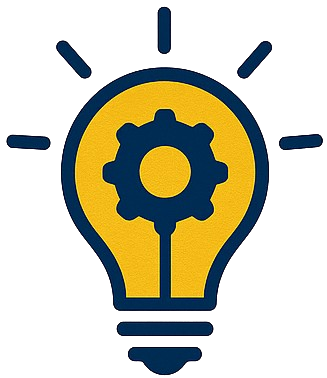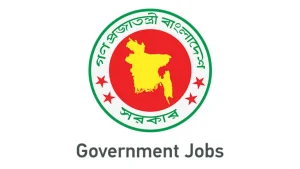In today’s fast-paced world, mastering effective stress management techniques has become essential for maintaining both physical and mental well-being. Mindfulness is a powerful tool for reducing stress and anxiety. It involves staying in the present moment, without judgment, and focusing on your breath, thoughts, and feelings. Whether you’re dealing with work pressure, relationship challenges, or daily life demands, implementing proven stress management techniques can significantly improve your quality of life and overall health.
How to Plan an Affordable Family Vacation
Why Effective Stress Management Techniques Matter
Chronic stress affects millions of people worldwide, leading to physical symptoms like headaches, muscle tension, and digestive issues, as well as mental health challenges including anxiety and depression. Research shows that meditation can cut stress by 14% in 10 days, demonstrating the immediate benefits of implementing proper stress management techniques.
The consequences of unmanaged stress include:
- Physical Health Impact: Increased risk of heart disease, weakened immune system, and sleep disorders
- Mental Health Effects: Anxiety, depression, irritability, and difficulty concentrating
- Behavioral Changes: Poor eating habits, social withdrawal, and decreased productivity
- Relationship Strain: Increased conflicts and communication breakdowns
- Work Performance: Reduced efficiency and increased absenteeism
Science-Based Stress Management Techniques
1. Mindfulness Meditation for Stress Relief
Mindfulness meditation stands out as one of the most effective stress management techniques supported by extensive research. Mindfulness meditation programs had moderate evidence to improve anxiety and show measurable benefits within weeks of practice.
How to Practice Mindfulness:
- Find a quiet space and sit comfortably
- Focus on your breath without trying to change it
- Notice thoughts and feelings without judgment
- Start with 5-10 minutes daily and gradually increase
- Use guided meditation apps for structured practice
2. Deep Breathing Exercises
Deep breathing is one of the simplest yet most powerful stress management techniques you can use anywhere, anytime. This technique activates your body’s relaxation response and provides immediate anxiety relief.
The 4-7-8 Breathing Technique:
- Inhale through your nose for 4 counts
- Hold your breath for 7 counts
- Exhale through your mouth for 8 counts
- Repeat this cycle 3-4 times
3. Progressive Muscle Relaxation
This technique involves systematically tensing and relaxing different muscle groups to release physical tension and promote mental calmness.
Progressive Muscle Relaxation Steps:
- Start with your toes and work upward
- Tense each muscle group for 5 seconds
- Release and notice the contrast between tension and relaxation
- Focus on the feeling of relaxation for 15 seconds before moving on
5 Easy One-Pot Recipes for Quick Dinners
Physical Activity as Stress Management
Regular Exercise for Anxiety Relief
Physical activity is among the most effective stress management techniques, providing both immediate and long-term benefits. Mind-body techniques, the relaxation response, and mindful movement like qigong and tai chi can help reduce stress and restore energy.
Best Exercises for Stress Relief:
- Aerobic Activities: Walking, jogging, swimming, cycling
- Mind-Body Practices: Yoga, tai chi, qigong
- Strength Training: Weight lifting, resistance exercises
- Dance: Any form of movement to music
- Outdoor Activities: Hiking, gardening, nature walks
Yoga and Tai Chi Benefits
These ancient practices combine physical movement, breathing techniques, and meditation, making them comprehensive stress management techniques that address both physical and mental aspects of stress.
Secret Fairytale Towns in Europe You’ve Never Heard Of
Cognitive Stress Management Techniques
Reframing Negative Thoughts
Cognitive restructuring helps you identify and challenge stress-inducing thought patterns, replacing them with more balanced perspectives.
Thought Reframing Process:
- Identify: Notice negative or catastrophic thoughts
- Challenge: Ask if the thought is realistic or helpful
- Replace: Create balanced, evidence-based alternatives
- Practice: Consistently apply new thought patterns
Time Management and Prioritization
Effective time management serves as a fundamental stress management technique by reducing overwhelming feelings and increasing control over daily activities.
Time Management Strategies:
- Eisenhower Matrix: Categorize tasks by urgency and importance
- Time Blocking: Schedule specific times for different activities
- The 80/20 Rule: Focus on the 20% of tasks that create 80% of results
- Delegation: Assign tasks to others when possible
- Say No: Set boundaries to prevent overcommitment
Top Free Productivity Apps for Students and Professionals
Lifestyle-Based Stress Management Techniques
Sleep Optimization
Quality sleep is crucial for stress management, as sleep deprivation significantly increases stress hormone levels and reduces emotional regulation.
Sleep Hygiene Practices:
- Maintain consistent sleep and wake times
- Create a relaxing bedtime routine
- Limit screen time before bed
- Keep your bedroom cool, dark, and quiet
- Avoid caffeine and large meals before bedtime
Nutrition for Stress Relief
Proper nutrition supports your body’s ability to handle stress and provides sustained energy throughout the day.
Stress-Fighting Foods:
- Complex Carbohydrates: Whole grains, legumes, vegetables
- Omega-3 Fatty Acids: Fish, walnuts, flaxseeds
- Magnesium-Rich Foods: Dark chocolate, nuts, leafy greens
- Vitamin B Complex: Eggs, meat, dairy, fortified cereals
- Antioxidants: Berries, green tea, colorful vegetables
Britain’s Secret Beaches: Fossils, Dolphins & Hidden Beauty
Social and Environmental Stress Management
Building Support Networks
Strong social connections provide emotional support and practical assistance during stressful times, making social engagement one of the most important stress management techniques.
Ways to Build Support:
- Maintain regular contact with family and friends
- Join community groups or clubs based on interests
- Participate in volunteer activities
- Seek professional counseling when needed
- Consider joining support groups for specific challenges
Creating Calming Environments
Your physical environment significantly impacts stress levels. Creating spaces that promote relaxation enhances the effectiveness of other stress management techniques.
Environment Optimization Tips:
- Declutter and organize living and work spaces
- Add plants or natural elements
- Use calming colors like blues and greens
- Incorporate soft lighting options
- Play soothing background music or nature sounds
Mindfulness Techniques for Reducing Everyday Stress
Technology and Modern Stress Management
Digital Wellness Strategies
While technology can contribute to stress, it can also provide valuable tools for stress management when used mindfully.
Digital Stress Management:
- Set specific times for checking emails and social media
- Use apps for meditation, breathing exercises, and sleep tracking
- Create tech-free zones in your home
- Practice the 20-20-20 rule: Every 20 minutes, look at something 20 feet away for 20 seconds
- Limit news consumption to prevent information overload
Stress Management Apps and Tools
| App Category | Examples | Benefits |
|---|---|---|
| Meditation | Headspace, Calm, Insight Timer | Guided sessions, progress tracking |
| Breathing | Breathe, 4-7-8 Breathing | Simple, accessible techniques |
| Sleep | Sleep Cycle, Noisli | Sleep quality monitoring, relaxing sounds |
| Mood Tracking | Daylio, Mood Meter | Pattern recognition, emotional awareness |
| Time Management | Todoist, RescueTime | Task organization, productivity insights |
Budget-Friendly Home Renovation Tips that Last
Advanced Stress Management Techniques
Journaling for Emotional Release
Writing about stressful experiences helps process emotions and gain perspective, making journaling one of the most therapeutic stress management techniques.
Effective Journaling Methods:
- Stream of Consciousness: Write continuously for 10 minutes without editing
- Gratitude Journaling: List three things you’re grateful for daily
- Problem-Solving: Write about challenges and brainstorm solutions
- Emotion Tracking: Record feelings and identify triggers
Creative Expression for Stress Relief
Engaging in creative activities provides an outlet for stress and promotes flow states that naturally reduce anxiety.
Creative Stress Relief Options:
- Drawing, painting, or crafting
- Playing musical instruments or singing
- Creative writing or poetry
- Photography or videography
- Cooking or baking new recipes
Newborn Care 101: Essential Tips for First-Time Parents
Frequently Asked Questions
What are the most effective stress management techniques for immediate relief?
The most effective immediate stress management techniques include deep breathing exercises (especially the 4-7-8 method), progressive muscle relaxation, and brief mindfulness meditation. These techniques can provide anxiety relief within minutes and can be practiced anywhere without special equipment.
How long does it take for stress management techniques to show results?
Many stress management techniques provide immediate benefits, but lasting changes typically occur with consistent practice. Research shows that mindfulness meditation can reduce stress by 14% in just 10 days, while regular practice over 8 weeks provides long-term stress reduction benefits. Most people notice improvements in stress levels within 2-4 weeks of consistent daily practice.
Can stress management techniques replace professional treatment for anxiety?
While stress management techniques are highly effective for managing everyday stress and mild anxiety, they should complement, not replace, professional treatment for severe anxiety or clinical disorders. These techniques work best when combined with therapy, medication (if prescribed), and other professional interventions for comprehensive mental health care.
Which stress management techniques work best for workplace stress?
The most practical workplace stress management techniques include desk-based breathing exercises, brief mindfulness sessions, time management strategies, and environmental modifications. Taking short walks, practicing the 20-20-20 rule for eye strain, and setting boundaries around work communications are particularly effective for managing job-related stress.
How to Create a Personal Budget and Save Money
Take Control of Your Stress Today
Implementing effective stress management techniques is one of the best investments you can make in your overall health and well-being. Remember that different techniques work better for different people, so experiment to find the combination that works best for your lifestyle and stress patterns.
Start small by choosing one or two techniques that resonate with you and practice them consistently for at least two weeks. As these become habits, gradually incorporate additional stress management techniques to build a comprehensive toolkit for lifelong stress resilience.
Ready to transform your stress management approach? Discover personalized stress relief strategies and access guided sessions designed specifically for your needs. [Insert affiliate link here] offers comprehensive stress management programs with expert guidance, progress tracking, and a supportive community to help you achieve lasting anxiety relief and improved mental well-being.
Remember: Consistent practice is key to mastering stress management techniques. Be patient with yourself as you develop new habits, and celebrate small victories along your journey to better stress management and improved mental health.










